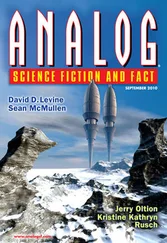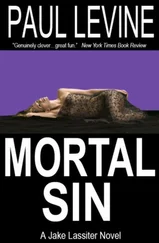Her name is Dra—. That’s D, R, A, dash. Like her name, the heroine of Stacey Levine’s first novel is shadowy, incomplete. This story about a woman whose identity is so imperiled that she can make almost no moves toward adult life is both haunting and laugh-out-loud funny.
The novel turns that most banal of activities, the search for a job, into a nightmarish pilgrimage of regression and lost selfhood … In polite, literate prose that evokes Kafka, Levine characterizes the quest for employment as a virtually hopeless bid for access to some kind of normalcy. The demands of the adult world seem arbitrary if not malevolent, and Dra— is repeatedly derailed in her job search by her longings to succumb to passivity and infantilism. A visit to an employment agency provokes in her an overpowering — and hilarious — craving to go to the doctor, to lie down and be examined for an internal disorder, or even more attractive, to be in the presence of the doctor’s bewitchingly understanding Nurse.
Dra—’s dreams of being cared for like a child are regularly denounced by other characters, who seem to have x-ray vision into each others’ psyches. At one point, an employment manager says to Dra—: “You’re afraid of others’ feelings, aren’t you? You’d do anything to avoid anger, even stop defecating, wouldn’t you?”
As this suggests, the novel takes place at the site of the earliest human issues. Levine even uses overtly Freudian underpinnings, at one point having Dra— nestle jealously between a man and a woman who are trying to have sex … [But] Dra—’s sexuality is located at such a submerged area of childish fantasy that it could scarcely be termed a “drive.” Levine evokes the early stages of longing with beautiful, arresting prose:
Once, Nanny had carried Dra—’s heavy books through the hallway with one bluish, straining arm … Nanny had lifted the books easily and with great calm, a gesture that had caused Dra— to flood inside with an unendurable sweetness so close to illness that she in fact sat sickened all that day, bent, limbs apart, daydreaming fitfully of Nanny’s high, stark forehead and thinly vibrating voice.
Adult sexuality is a faraway land from the psychic territory of this novel, which seems to be a pre-Oedipal swamp of fear and dread. In the modernist tradition yet in a voice that’s entirely her own, Levine puts the emotional violence of human relations under a high-power microscope, producing a memorably funny narrative that is hauntingly unusual.
— Kristy Eldredge, Third Coast
WHEN SHE LOOKED at the man sitting at his work desk, she noticed that most of his hair was gone, not as if it had been shaven, but as if it had fallen out, perhaps recently. Dark and light patches of scalp showed through, along with all the veins, knots, and other unsettling irregularities of his head.
She had never actually spoken to him, the slight, thoughtful-seeming man, though he had been there for many months in the same set of dim workrooms as she; he had been in the auditorium, too, during the first moments she and he and dozens of others had become eligible for employment. She also had seen him during the three days she had spent traveling to the low, remote set of offices where the fact of this eligibility had been confirmed, and she remembered him hazily from the distant past as well. And now, momentarily, he was before her again, sitting motionlessly behind stacks of paperwork as she made her way past a series of narrow hallways with their gruelingly close workrooms.
She did not know the man’s name, although she had seen him many times; so in her mind she began to refer to him as The Man with No Hair, despite the fact that he had hair, though not much.
And overall she did not think of the man very often at all, because she had been so absorbed lately with finding a job, a very important task — so important, in fact, that she, like everyone else, needed to follow through with it unerringly and never fail.
But it was really only a matter of searching for good, solid work until something turned up. Naturally she would check telephone messages at every reasonable moment, and search the endless lists of jobs posted in the hallways, too — lists which always rotated, since new positions were cropping up at various times throughout any given day; and even as the map on the wall before her now indicated, jobs were constantly shifting in their availability, and were in fact virtually limitless in number, so that really, it was only a simple matter of matching oneself to the right job, seizing the opportunity, then fiercely beating back all thoughts of disgrace.
But at any given moment, she, Dra—, knew that droves of would-be employees were searching for jobs, flooding the message centers entirely of their own wills with flat, anxious voices that no one heard, wishing out loud just for a chance at a reasonable, attractive job, or any tolerable job at all — yet it was impossible to know if she would ever find one, or if anyone ever would or had. But it remained that all employee hopefuls were competing at every moment for work — she knew this with sightless certainty, in the way one senses the puzzling presence of one’s own being — such that very few jobs were ever available, and it was next to impossible to find one.
Walking on, purse clamped tightly beneath her arm, it seemed the image of the man slipped from her mind because she could not hold it there, and she told herself not to worry about jobs, since worry was damaging to the heart, brain, kidneys, and stomach; and didn’t employees sometimes die from ailments whose sole cause was worry? It was best not to worry, since finding an attractive job was more important than worry any day — yet, she thought suddenly, now stepping up her pace, why hurry so? What was the point in hurrying to find a job, since surely one must come, in time? But she had been wasting days and even weeks, she answered herself, and should have found a job long ago, and should be finding one now. It would be much healthier to find a job slowly and with dignity, then calmly hold onto it for decades — that was much preferable to worrying wrenchingly over never finding a job and then being consumed by all the worries and shame that joblessness always brings.
But finding work was a near-certainty. Her very first job would be just one of many, many jobs she would hold throughout her lifetime, she knew — all jobs being the same, of course, yet all of them quite different, too — the nature of any single job being to sweeten and change subtly over time. Still, no one could ever really define the true, exact nature of any given job, even if one held it for decades, because jobs were, in their essences, evolving things, and always mysterious.
On the other hand, one could become quite knowledgeable about all the countless jobs that existed, too, their finer points and subtler demands — and the ways they might be grouped and regrouped according to the admixture of their duties, their titles or lead administrators, or even by their humorous aspects, though only a veteran of decades would be able to classify them that way; and really, she wondered, much struck, mightn’t it be impossible for any one person, even an administrator, to know every detail about every job? Yes, that would be a task for an entire organization, she realized, still walking carefully along — the Employment Office, of course — and it was toward this office that she now walked.
And in these dim empty hallways with their lingering odor of toilets and chalk, memories scaled colorlessly through her mind as she pressed on. She recalled walking down a narrow, endless hallway years ago — it might have been this very hallway, though that was impossible to know — and seeing her own doctor, a man, reclining in a womanish manner against a cabinet, wearing, possibly for warmth, a shawl, quietly intoning to someone, perhaps another doctor, “It was only a small swelling on his forehead; I did nothing more than push it, just to see what it was, that’s all.
Читать дальше












